Automobiles are evolving at a dizzying rate, what with newer and more advanced features being successfully carried over from concept to production, making cars much more convenient to drive. One example of this is how the auto industry is phasing out the traditional keyhole ignition in favor of smart keys.
Soon, however, even these tiny transmitter will be supplanted by something that’s even closer and more difficult to lose: the driver’s body. Yes, carmakers are now experimenting with the notion of biometrics being the only key a driver will need in accessing and operating the car.
Now, Philkotse.com will provide you with enough information relating to the biometric system in cars and its pros and cons.
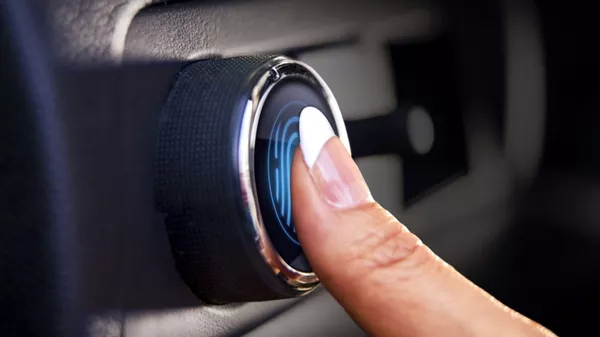
Carmakers are now experimenting with the notion of biometrics
1. What is biometrics?
Biometrics refers to the unique physical characteristics that set every human being apart from each other. Biometric technology is a means of precise authentication using digital devices, based on our biological information such as fingerprints, irises, genetic makeup such as DNA and other physical characteristics.
We have been making use of biometrics in other fields, long before automakers have thought of implementing them in cars; office timekeeping, for instance, makes use of biometric scanners to track employee attendance more accurately, and smartphones and laptops have been equipped with fingerprint sensors as a means to prevent unauthorized access.
With the biometric system, the authorized user needs to be present in order to be granted, which adds a layer of security.

Biometric technology is a means of precise authentication using digital devices
With advances in technology, consumers also have higher expectations when it comes to convenience and security, and the auto industry is no exception in this regard.
>>> Read more: Become tech expert to decrypt biometric seat technology.
2. How important are biometrics or fob keys
Leading biometrics provider Iritech has estimated that biometric vehicle access will likely grow by 20% between 2016 and 2020.
A major reason for this is security. In a time where information is power, practically everyone agrees on the importance of security in our daily lives, whether it pertains to the home, the office, and mobile phones, so implementing it (or an advanced form of it) on our vehicles sounds like a logical progression.
At present, most cars today already use some form of keyless entry as part of their security setup; higher-end models even utilize PIN codes to lock/unlock and start the engine.
However, they have drawbacks and are prone to be hacked; a determined thief try every possible PIN combination, and keys can be lost or stolen, to be duplicated by someone who has malevolent intentions in mind.
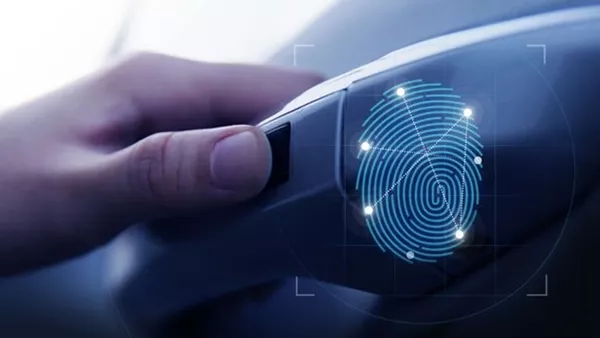
A more secure setup which is more difficult to duplicate or clone: the user’s physical identity
Key fobs are now at risk of being easily hacked. The signal transmitted by a key fob to the car’s radio receiver can be intercepted and cloned by unscrupulous individuals, with the aim of stealing your precious possession.
In a test conducted by a German motoring organization involving 237 cars equipped with keyless systems, only three managed to defeat attempts at keyless theft. Automakers and insurance companies alike are faced with a growing number of car theft incidences, meaning that traditional security systems are no longer enough.
A more secure setup will make use of the one thing that is arguably more difficult to duplicate or clone: the user’s physical identity.

Key fobs are no longer as effective as they used to be
3. What biometric system include?
Facial recognition
One option for automakers to grant user access is through facial recognition; early this year, Apple had already patented a facial recognition system that automatically unlocks the car as the driver approaches, as well as adjusting the driver’s seat and mirrors to individual preferences.
However, one drawback is that a driver’s appearance can be altered by cosmetics such as makeup. Variable lighting conditions can also affect facial recognition, especially if it’s too dark for the camera to verify the user’s identity.
This may also present some privacy issues, as the cameras utilized in facial recognition might also be used for spying on other drivers or passengers.
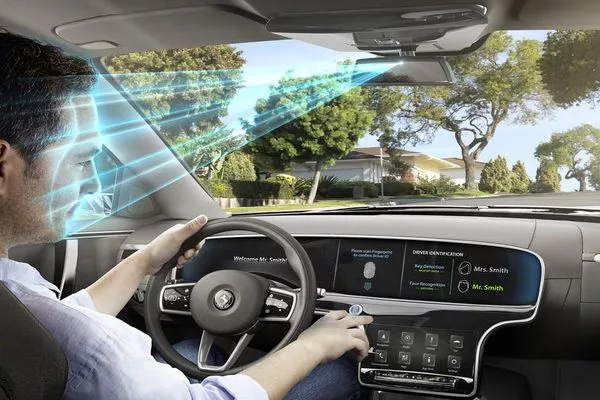
Automakers are considering using facial recognition
Voice recognition
This involves recording the driver’s voice and using it to unlock the car, as well as control certain features. An aftermarket system, Voicesafe-36, was developed around this concept.
It can store up to four unique voice imprints, and will automatically disable the car’s fuel supply if an unauthorized user is detected. A drawback to voice recognition is when a thief is somehow able to record your voice or worse, actually copy your voice precisely in order to gain access to the car.
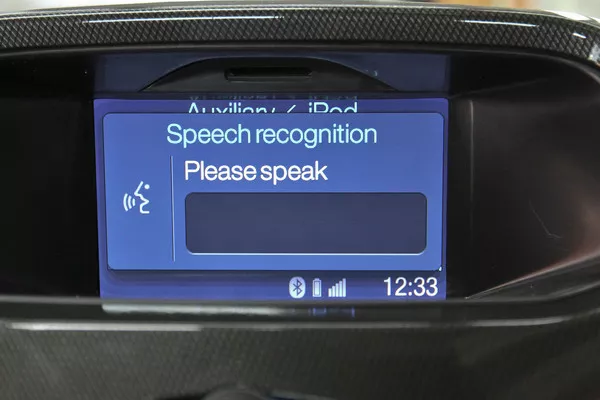
Voice recognition systems in cars come either as a stock feature or aftermarket installation
Fingerprint ID
This type of biometric identification is widely used, for the simple reason that fingerprints are unique in every individual; this ensures that only the authorized user can access the car’s features.
However, one caveat is that the system can be defeated if a thief were to successfully retrieve the owner’s prints and use them to control the car.
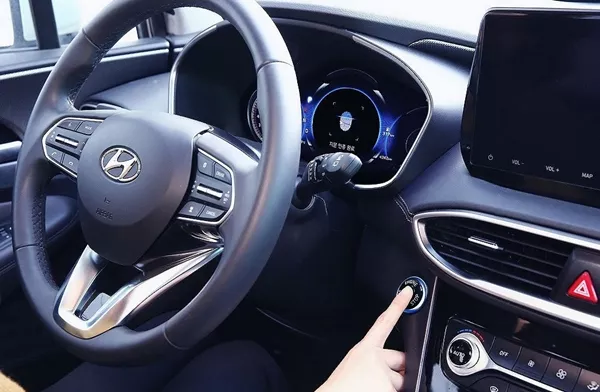
Fingerprint ID is widely used for the security system as this is very reliable
Iris recognition
Automakers are now exploring this option. Eventually, they plan on installing both fingerprint identification and iris recognition on cars as complementary systems, where one confirms the other as a form of two-step verification.
>>> Check out: Self-driving car: 9 advantages for Filipino drivers.
4. Biometric system features
- A sensor that records user data stores them in the system to be used for authentication. This is usually found in retinal and fingerprint scans.
- The system will use the biometric data of the potential user to check if it matches any recorded data.
- If no match was found, the system will deny access to the individual. The alarm will be activated, or the authorized user will be notified of a thwarted intrusion.
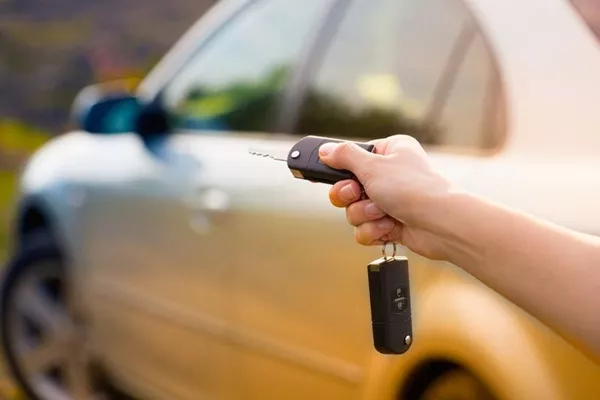
The alarm will be activated, or the authorized user will be notified of a thwarted intrusion
Biometrics in cars (for keyless entry and engine start)
- The fingerprint sensor will authenticate the fingerprint provided by the user.
- If the fingerprint matches with one recorded in the system, the doors will unlock to grant physical access into the car. A second fingerprint verification process will start the engine.
- Biometric data can also be used by the system to control the car’s various settings such as the seat adjustment, climate control, music, and even navigation parameters.
- If the system finds no fingerprint match, the alarm will activate, even as the owner is notified via text message.
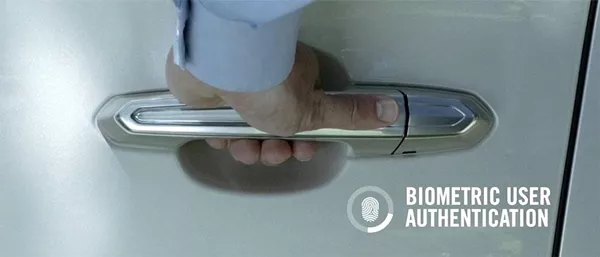
The fingerprint sensor will authenticate the fingerprint provided by the user
Other features:
- The system can store prints from multiple authorized individuals, this enables you to share driving duties with your partner. Teenaged children can also borrow the car, especially with a parental mode that limits certain features such as vehicle top speed and music volume.
- The set-and-forget feature means that the car automatically locks after a specified length of time after you leave the vehicle, reducing the need to go back and check if you remembered to engage the locks.
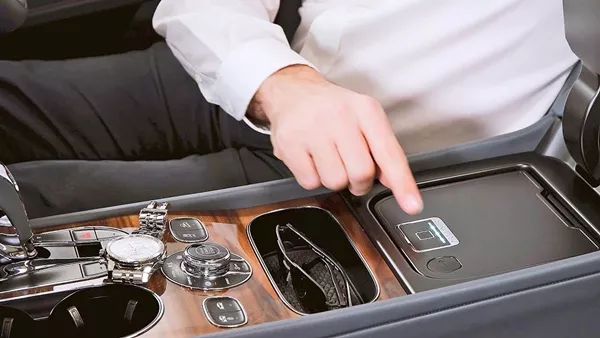
The system can store prints from multiple authorized individuals, this enables you to share driving duties with your partner
5. Pros and cons of biometric system
Biometrics and its benefits
Car security system is an important consideration among car buyers since it’s the primary means of protecting their purchase.
- With the prevalence of fingerprint identification, it is generally considered a reliable method of security.
- Exceptional security and excellent recognition accuracy.
- No one has the same fingerprint as you are, making items secured with fingerprint identification harder to steal. They would need your fingerprint to enter the car and start the engine.
- No more stolen or lost keys, and no more worrying about key fob transmitters running out of battery.
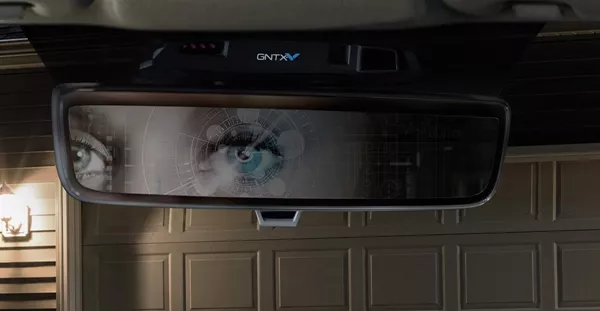
Security is an important consideration among car buyers since it’s the primary means of protecting their purchase
Con's of biometrics
Like everything else, biometric technology is not without its flaws.
- Data protection and security can be compromised by determined thieves. This could prevent consumers from fully placing their trust in the system.
- Biometrics being a more sophisticated technology will likely jack up the costs of cars equipped with such a system. And if something goes wrong, expect repairs to be pricey as well.
- Environmental factors can affect measurements. Sufficient external noise, for example, can potentially interfere with voice recognition software.
- For aftermarket installations on cars that are not originally equipped with biometrics, the system has to be integrated using additional hardware.
- Once compromised, the system cannot be reset.
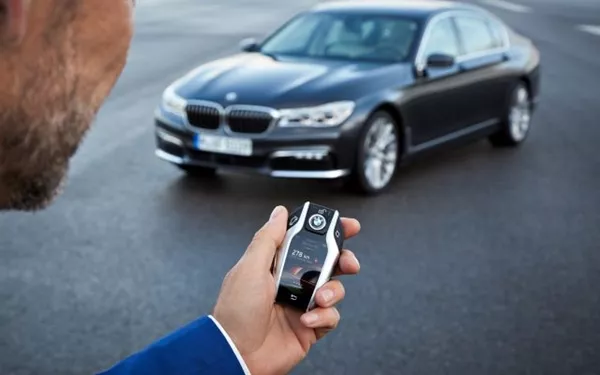
However, biometrics or not, it is ultimately the driver’s responsibility to secure the car at the end of the day
Biometrics or not, it is ultimately the driver’s responsibility to secure the car at the end of the day. The usual precautions still apply, such as picking out a visible parking slot, ensuring that the doors are locked and that no valuables are insight which might serve as an incentive for thieves to break into the car.
Recent posts
- 7 must-have active safety features in modern car Apr 13, 2021
- How theft can hack your keyless car & 7 ways to prevent it Nov 08, 2022
- What fancy high-tech car features should be prioritized? Nov 24, 2018
- 7 new features in car that make driving better Jul 20, 2018
- Top most essential car safety features to have in your car Jul 09, 2018





![[FOR FUN] Top 5 anime series that car enthusiasts will love](https://img.philkotse.com/crop/94x52/2019/11/06/xgWRvxxG/top-anime-for-car-lovers-5c8c.jpg)






